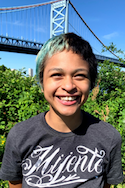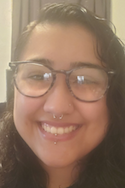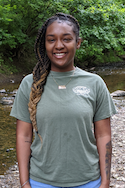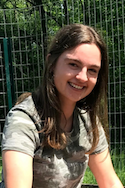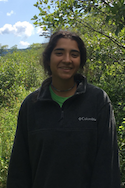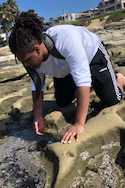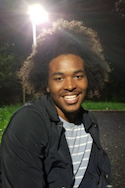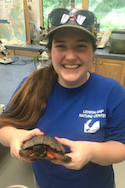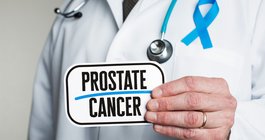
July 20, 2020
A clean-up campaign along a Philadelphia waterway, Wilmington area youth immersed in the Christina River and wetland ecosystems, and a series of videos highlighting Camden’s trails, rivers and parks, are just a few examples of the inspiring summer projects organized by Delaware River Fellows of the Alliance for Watershed Education.
Each of the 13 young adults participating in the Delaware River Fellows Program this summer are working on individual Capstone initiatives focused on environmental issues and engaging local communities. They are paid to carry out the projects, gaining valuable first-hand experience in habitat conservation and environmental education in the Delaware watershed.
The Fellows are employed by the PA, NJ and DE environmental education Centers that comprise the Alliance for Watershed Education (AWE), and hail from the urban, suburban and rural communities that make up the diversity of the Centers themselves. There has been a growing recognition of the lack of diversity, equity and inclusion in the environmental education and conservation field, and the Fellows program, now in its fourth year, engages and inspires young environmentalists to be agents of change, to bring their knowledge and interest in conservation to their communities, encouraging the enjoyment, use, and care of the natural areas in the watershed.
AWE builds on that momentum by intentionally engaging diverse communities, especially those that have historically been left out of conversations about protecting our shared environment, in addition to promoting equitable access to its Centers and fostering socially responsible practices that will result in a healthier natural environment.
Robin Irizarry, Fellowship Coordinator for AWE, is excited about the cohort of Fellows this year but recognizes there are some unique challenges facing them. “AWE Centers have had to creatively pivot from in-person to virtual programs this summer due to the pandemic, but that has not stopped the Fellows from pursuing their projects with passion and dedication. We’re seeing Fellows helping to transition summer camps and activities onto online platforms, developing self-guided tours and mailing do-it-yourself nature kits to people’s homes. The tools the Fellows are helping create will make our programming more relevant and accessible to the communities we serve into the future.”
The 2020 Fellows are passionate about the environment and are working hard to connect neighborhoods and people with nature and the watershed.
Adriana Amador Chacon
Speaking for all three Fellows, Adriana expressed a mutual desire to cultivate an appreciation of the natural areas among the Camden community so that residents understand the importance of keeping those areas clean.
Ivana Quinones
“Unfortunately for most residents, we’ve been disconnected from natural spaces for a multitude of reasons, and if we do have access, there tends to be a disregard and lack of respect for nature, as there is a lot of litter in these beautiful places. We hope to expose more families to activities in our natural surroundings that many don’t normally get to see or enjoy and show them ways they can help preserve these areas by making small eco-friendly changes.”
Priscilla Rios
“Many people in urban communities have not had the opportunity to form relationships with nature early on in their lives. So, not only might people be unaware of and disinterested in the outdoors, but they might fear what they do not know. I hope to show people how they are directly impacted by urban nature so that they are encouraged to treat their surroundings with greater care.” Charlye is focusing on a series of informative videos to raise awareness of issues of the Brandywine Creek, local dam removals and the return of the American shad, a native migratory fish.
Charlye Stewart
At the DuPont Environmental Education Center in Wilmington, fellow Allison Harten is working with the Trail Ambassadors program, an initiative to create a more inclusive and diverse outdoor space. The program works primarily with African American teens in the Wilmington community, teaching them about the Delaware Watershed and hoping to empower them to become environmental advocates.
Allison Harten
Ranim Albarkawi
Ranim Albarkawi and Ian Johnson are leading the charge on a litter cleanup campaign at John Heinz National Wildlife Refuge. The #PhilaBag social media campaign aims to educate Southwest Philadelphians about their impact on the Delaware watershed and to engage the local community in clean-up events. Ranim and Ian also hope to increase participation in the volunteer paddle litter cleanup program, Caretakers of the Creek, if permissible under social distancing guidelines.
Ian Johnson
At Bartram's Garden, Fellows Keith Southerland and Brooklyn Clayton will be focusing on wildlife issues and enhancing communication with the local community, respectively. Keith is working on developing interpretive signs about the wildlife that inhabit the garden and surrounding river and is particularly interested in raising awareness about invasive wildlife, such as the red-eared slider turtle.
Keith Southerland
Brooklyn is planning a dialogue to foster a greater connection to the Schuylkill River among Bartram's Garden staff, volunteers and community members. She is hoping to engage in these conversations on the water using Bartram’s own supply of kayaks and rowboats.
Brooklyn Clayton
Marcus Baldwin
Katie Toner, a Fellow at the Heritage Conservancy at Bristol Marsh, is creating training materials for the Lower Bucks Environmental Stewardship Team. The materials will highlight the diversity among the stewardship team with the overall goal of establishing an ethos of inclusion.
At the Lehigh Gap Nature Center, Fellow Kelci Knirnschild is creating a sensory trail to highlight native plants. As a tool for self-guided education, the Native Sensory Garden Trail will appeal to the senses of sight, smell, sound and touch. The trail will be accessible to individuals with disabilities and Kelci hopes the multi-sensory trail will encourage a wide range of visitors to interact with, and enjoy, the Center and its native plants.
Katie Toner
Kelci Knirnschild
The Delaware River Fellows Program will culminate in the Capstone Summit when each Fellow will present his/her/their research, findings, and experiences. Follow the Fellows on AWE’s website, Instagram and Facebook page. The Fellows Program is funded by the William Penn Foundation, which has supported four cohorts and more than 90 individual Fellows. At least 10 Fellows have been hired for full- or part-time work by AWE centers.
Veronica Wynn
